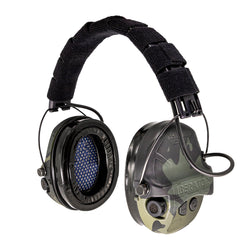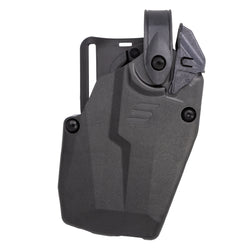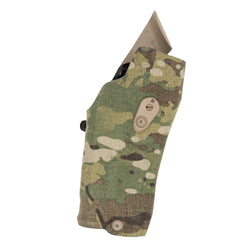In the final installment of our Baer Solutions medical series, we go straight to the front lines—literally. This time, it’s not about reps on the range or theory in a classroom. It’s about high-stress decision-making, rapid threat assessment, and doing everything you can to increase survivability for both law enforcement officers and the public.
A Call Like Too Many Others
The scenario kicks off like too many real-world calls do: shots fired in a Walmart parking lot. Officers arrive on scene with fragmentary info, adrenaline pumping, and no time to second-guess. It’s a chaotic, dynamic situation. Communication is clipped but constant. You hear the team move:
“He’s got a gun!”
“Help! I’ve been shot!”
The simulated radio traffic paints a scene any LEO would recognize—a threat still active, a fellow officer down, and seconds ticking away.

Tactical Medicine Under Fire
This is where Baer Solutions brings their Medical Applications Course into sharp focus. It’s not just about treating a wound. It’s about positive control over a scene under stress, moving with purpose, making solid decisions under pressure, and communicating with each other. Students respond to gunfire, assess the threat, detain suspects, and shift immediately to life-saving care.
The downed officer presents with multiple injuries: a hemorrhage to the arm, a pelvic junction wound, and what appears to be a junctional neck wound. While the team secures the area and confirms all suspects are in custody, the medical response begins.

Initiating blood sweeps and rakes, they begin to communicate with each other on what they see and reassure the downed officer that everything is going to be ok. Finger in the wound cavity, gauze is packed with intent, turns from red, to pink, to white. Bleeding is controlled. The officer is pale, sweating, and struggling to breathe. You hear it in his voice: “Please don’t let me die.”
Real-Time Response, Real Stakes
The team works fast, talking through each step: packing wounds, applying pressure bandages, and checking for secondary injuries. They recognize the signs of respiratory distress and adjust the officer’s position, keeping him upright to help with breathing. Constant reassessment is the name of the game. Just like in a real incident, the goal isn’t perfection—it’s progress and survival.
By the time fire and EMS arrive, the officer is still alive because the team moved. They communicated. They treated. They didn’t wait for help—they were the help. The students relay their findings clearly: junctional bleeds packed, vitals monitored, responsive but fading. The handoff is professional, fast, and focused.

The Final Lesson
This final scenario brings the entire series into sharp focus. MARCH isn’t just an acronym—it’s a mindset. It’s how you think when your adrenaline’s spiked, your hands are slick, and there’s chaos all around. It’s not about being perfect. It’s about making progress when it counts.
Baer Solutions doesn’t teach medicine in a vacuum. They teach it as part of the fight. That’s what sets this course—and this company—apart. You don’t just memorize MARCH. You apply it when the threat isn’t theoretical and your partner’s bleeding out beside you.
If you’ve followed this series, you’ve seen how Baer builds strong habits, sharp decision-making, and purposeful training. This final scenario ties it all together. It’s a visceral reminder that skills learned in training must hold up when the pressure’s real.
Because when the worst happens—and it might—you won’t rise to the occasion. You’ll fall to your level of training.
Train so that you’re the one who moves. Who communicates. Who treats. Who brings your people home.
That’s what Baer Solutions is preparing you to do.
In Case You Missed It









